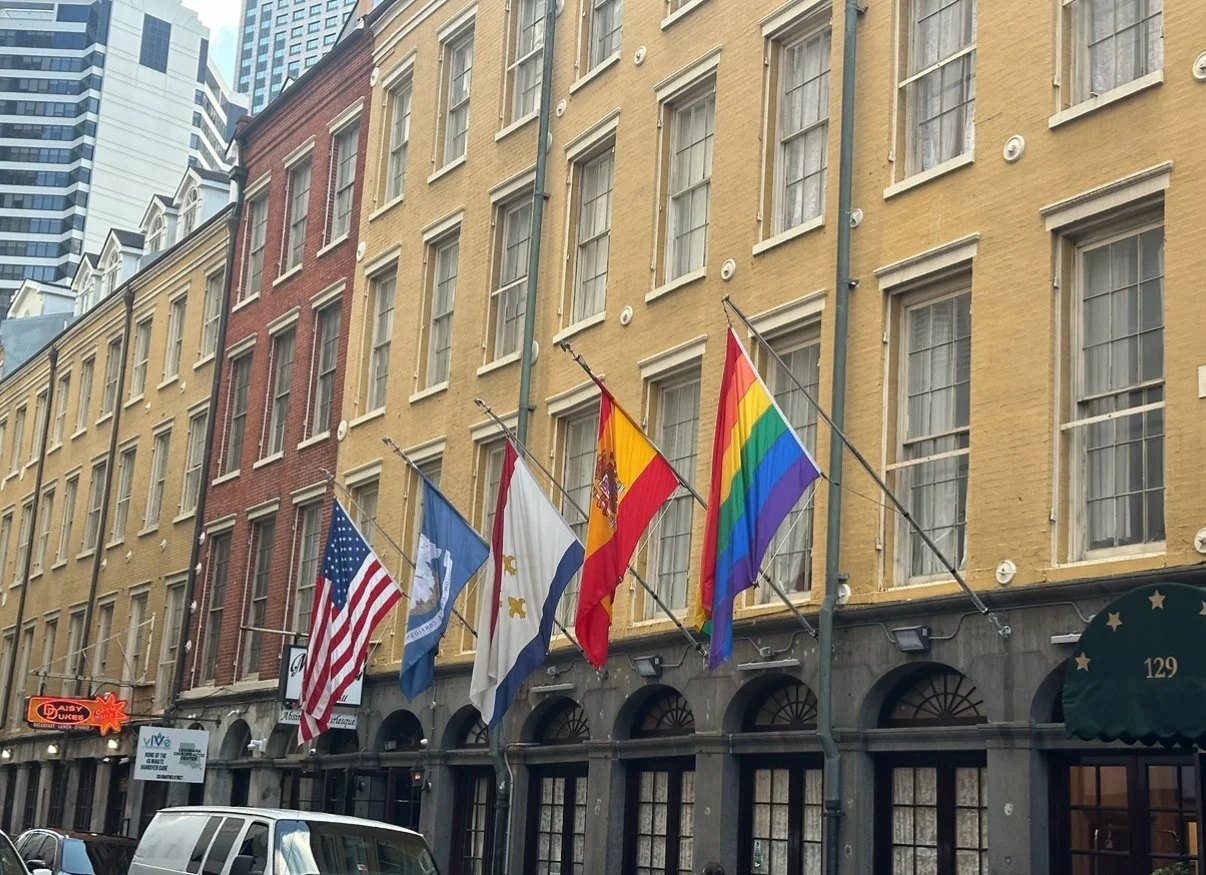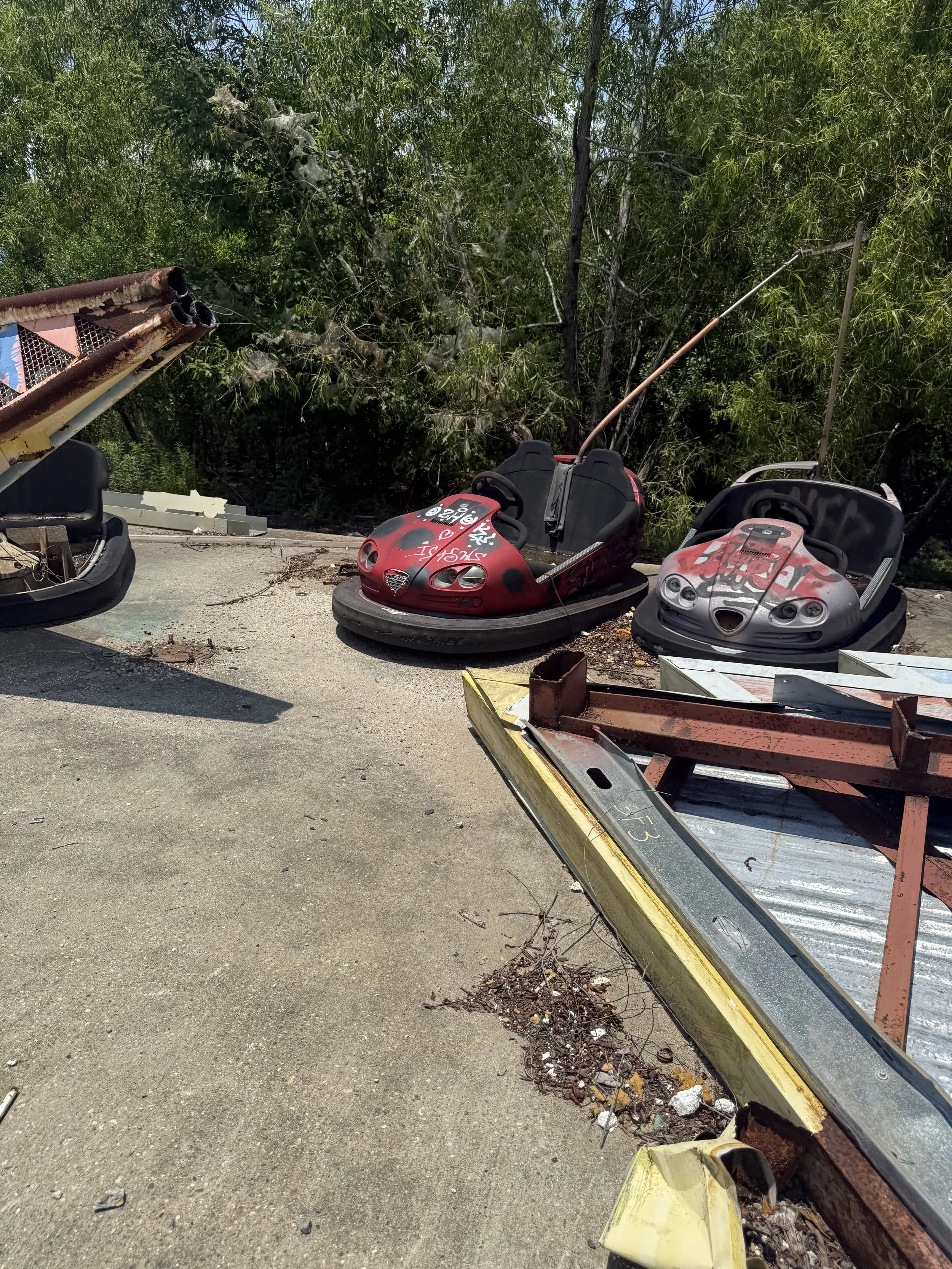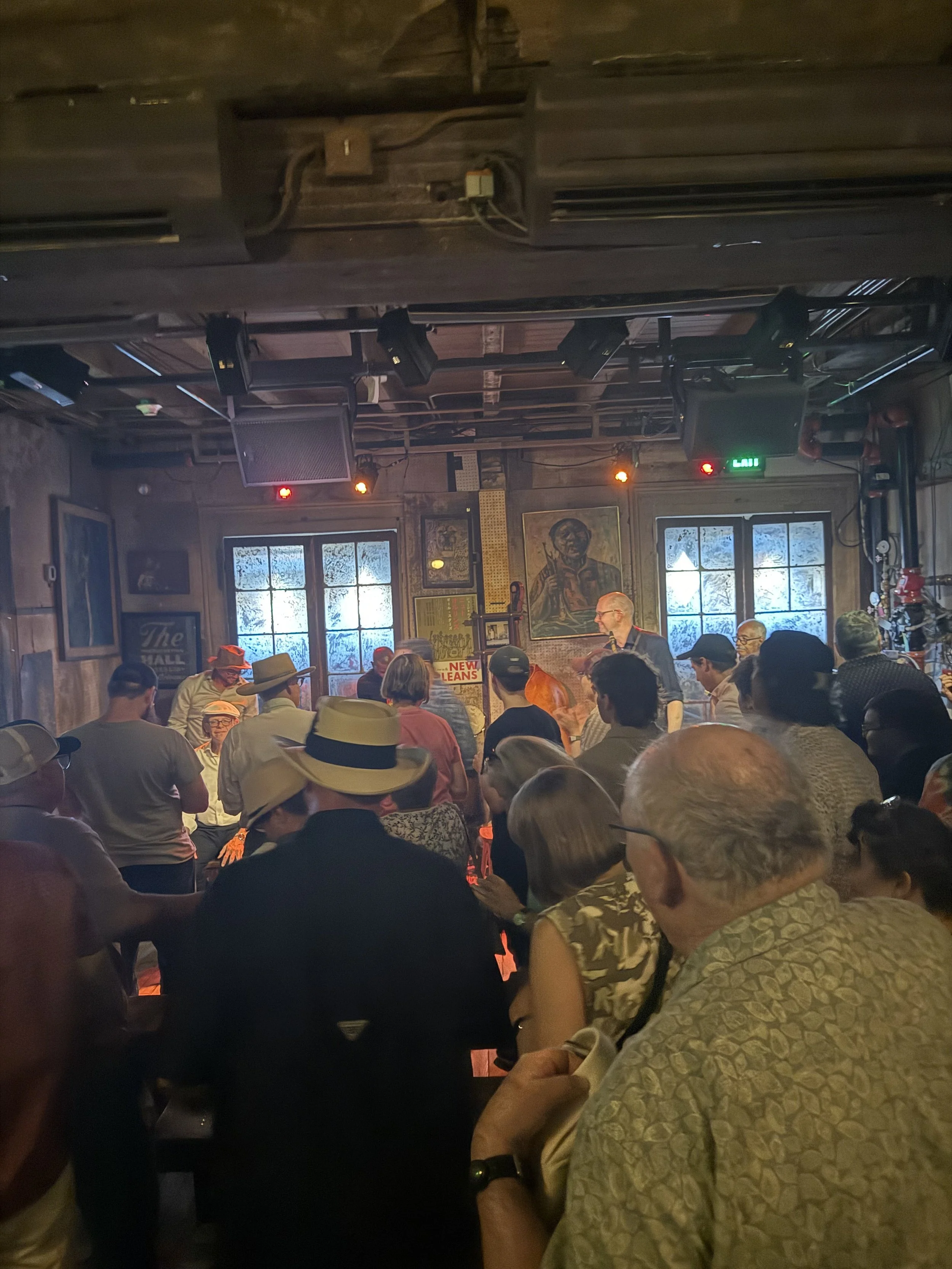There is an idea of White Southernism that is deeply painful. It lingers like a ghost—intangible, omnipresent, and unwilling to fade. In my own head, I struggle to understand how it could ever have been an acceptable way of life. It isn’t just about culture or tradition. It’s about a way of thinking, a legacy built on oppression, and the longing for a version of America that many would rather forget—or, worse, return to.
In New Orleans, you don’t see that ideology quite as clearly. The city feels like an island in the state of Louisiana, one of the most conservative places in the country. Driving through Grand Isle, I saw Trump 2024 flags on houses, on trucks, on hats, as if they were family crests. It was an unmistakable reminder: at its core, Louisiana is still very red. Yet New Orleans feels different. It’s messy and colorful and chaotic in a way that feels alive. It's a place where people of all shades live out loud, where history weighs heavy but where culture still finds ways to celebrate itself. It doesn’t feel like the rest of the state.
Visiting the Whitney Plantation was the moment the fantasy peeled away. I’ve never been in a place so steeped in grief. The land feels like it’s still breathing. Still mourning. You walk the grounds and imagine the people who lived and died there—not lived, exactly, but survived for as long as their bodies held out. Enslaved people born into brutality, dying in anonymity, never knowing what it felt like to rest inside the house they labored to maintain. Never knowing the comfort of being seen as human.
What’s nearly impossible to grasp is the perspective of the white people who did live inside that house. Who dined on the porch, entertained guests in high-ceilinged parlors, and passed laws that treated human beings like livestock. And yet, part of being a “worldly person” is trying to understand all angles of history. I tried. I stood in that main house, looked out the windows, and tried to imagine how someone could rationalize that kind of cruelty. But it is difficult to try and empathize with people who fought so hard to keep others beneath them. The mental gymnastics required to call it “heritage” instead of the horror it actually is. And in visiting the Confederate Memorial Hall, I did not last more than five minutes.
My mind raced with a single thought: These men would have hated me. They would have hated my existence, hated my parents for daring to have me into this country, hated the sacrifices my family made to create a better life here. That kind of hate leaves residue. And yet these men are preserved in glass cases, celebrated with medallions and plaques. But for what? For defending the right to enslave others? For fighting to keep families like mine from ever finding footing here?
What’s ironic is that in the end, they all wanted the same thing: the American Dream. The plantation owner, the immigrant father crossing the Rio Grande, the modern white conservative who fears a changing America. They all want some version of security, stability, meaning. But only some people were ever allowed to pursue that dream freely.
In reading ‘The Moviegoer’, I found it much simpler to read than the other books in this course. However, what makes it so simple? It, superficially, reads as a white man who has everything seeking some greater purpose, something that will make him whole. You want Binx to comply, to do as his Aunt Emily advises, to settle into being an adult at his grown age of twenty-nine. But he doesn’t, and what becomes clear is that even within privilege, there’s a kind of desperation. The desire for meaning is universal.
That’s what the White South tries to sell: the promise of meaning through order. It’s an idyllic picture of smiling families, sweet tea on porches, men with careers and women in pearls. A world of roles that fit just right. A world where everyone knows their place. But it’s a fantasy that comes at someone else’s suffering.
As society evolves, that picture becomes harder to maintain. The White South adapts, just like everything else. From the days of men going to college and women staying home, to now where both can pursue higher education, yet are still corralled into gendered roles. College becomes a rite of passage where you’re told to find yourself, only to be expected to shrink again immediately after.
For those clinging to that past, they see a threat in people who refuse to shrink. They see the rise of people of color as a reason their world is falling apart. In their minds, the system was perfect until “others” disrupted it. And so, they fight for that illusion to return. They dream of summer homes on the water, staff they don’t have to pay much, and wealth that feels earned simply by existing. It’s about comfort, not justice.
And that’s what makes it dangerous. That’s why you see such vitriol in conservative rhetoric. The outrage over immigration, the obsession with crime, the myths about stolen jobs; they all stem from fear. Not always hatred, though it often becomes that. But fear, fear of being irrelevant, of losing the privileges their ancestors bled to protect. Fear of looking in the mirror and not recognizing the country they thought was theirs alone.
What they forget is that their ancestors were immigrants too. That they were once called slurs. That they were once chased out of towns. They forget that the American Dream has never belonged to one group, and it never will.
In some aspect, it’s almost a form of escapism. While Binx uses movies and women to temporarily forget his woes, modern white southerners fight for a semblance of power to free themselves from the lack of control in their lives. They are scared of the progress because it is unfamiliar, they are scared of the rise of people of color because it is unfamiliar. They want the romantic life, the stoic one that asks for no more because it already has everything. They want to listen to jazz on Bourbon, without remembering how it came about. They want to have their weddings on plantation homes, without remembering the suffering that has taken place. They want to get into their dream schools, without remembering how displaced and stifled the people of color in America have been. They want to return to a world that was picked by them, without remembering that there are others surrounding them. They want to live in a version of America that is perfectly curated to their comfort.
But comfort is not truth. And comfort is not justice.
All week, I’ve checked my phone and seen headlines from Los Angeles—my home. I recall these Southerners, who wave their Trump flags high, who wish for a return in white pride, and wonder what they would think of me. What would they think of my mother, who immigrated here when she was ten from Guatemala? What would they think of my father, who immigrated when he was seventeen from Mexico? Would they even care that my father spent two days on foot, swimming through the Rio Grande with no material possessions, just to make it to El Paso? Was he wrong for wanting more for himself, for his future?
I know families who would have it worse than me. I am an adult, and an only child, so I would be the only one to take care of myself without my father. But there are families with children who are all citizens, children who would be completely displaced by their parents being banished and labeled as criminals. This was supposed to be about New Orleans, but I cannot make it about anything else.



